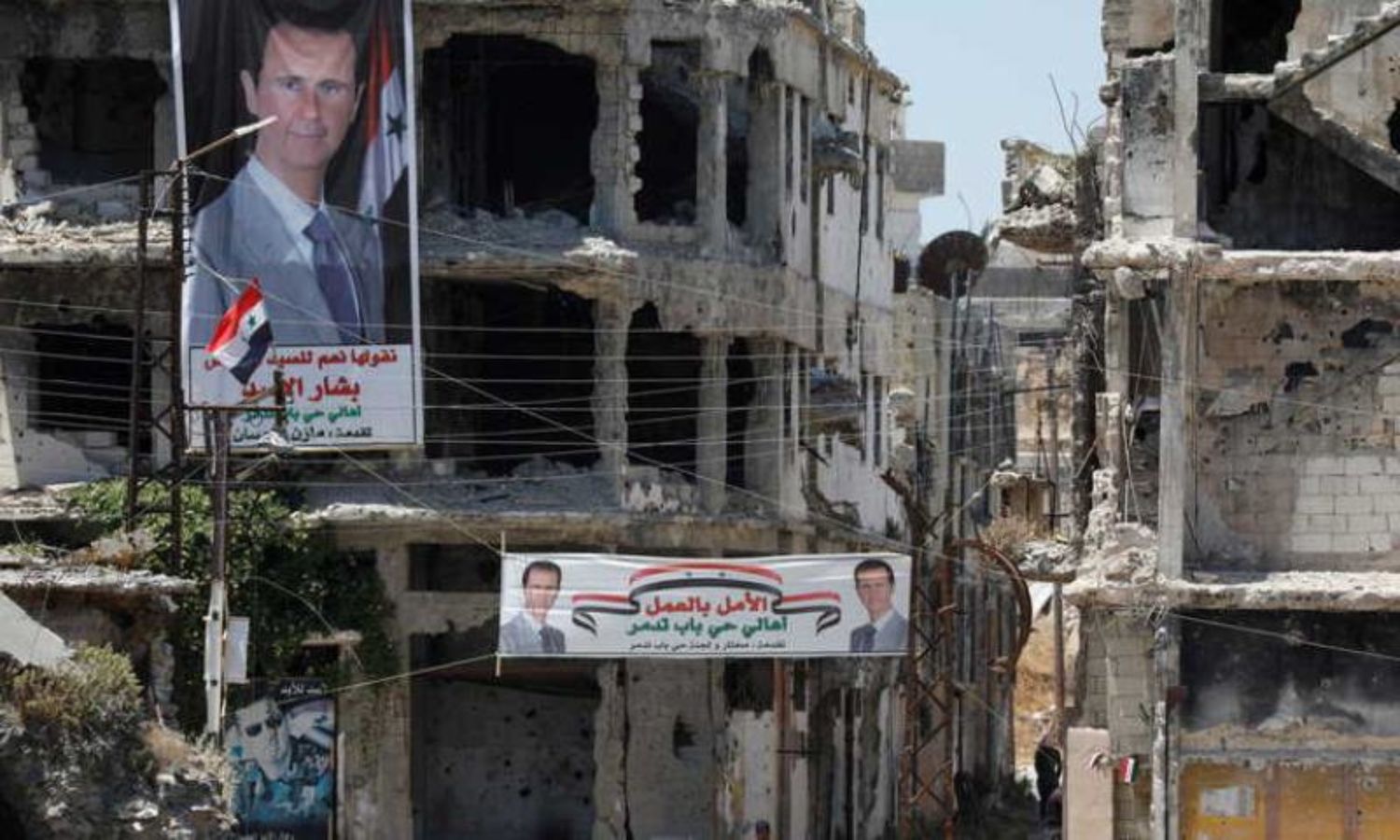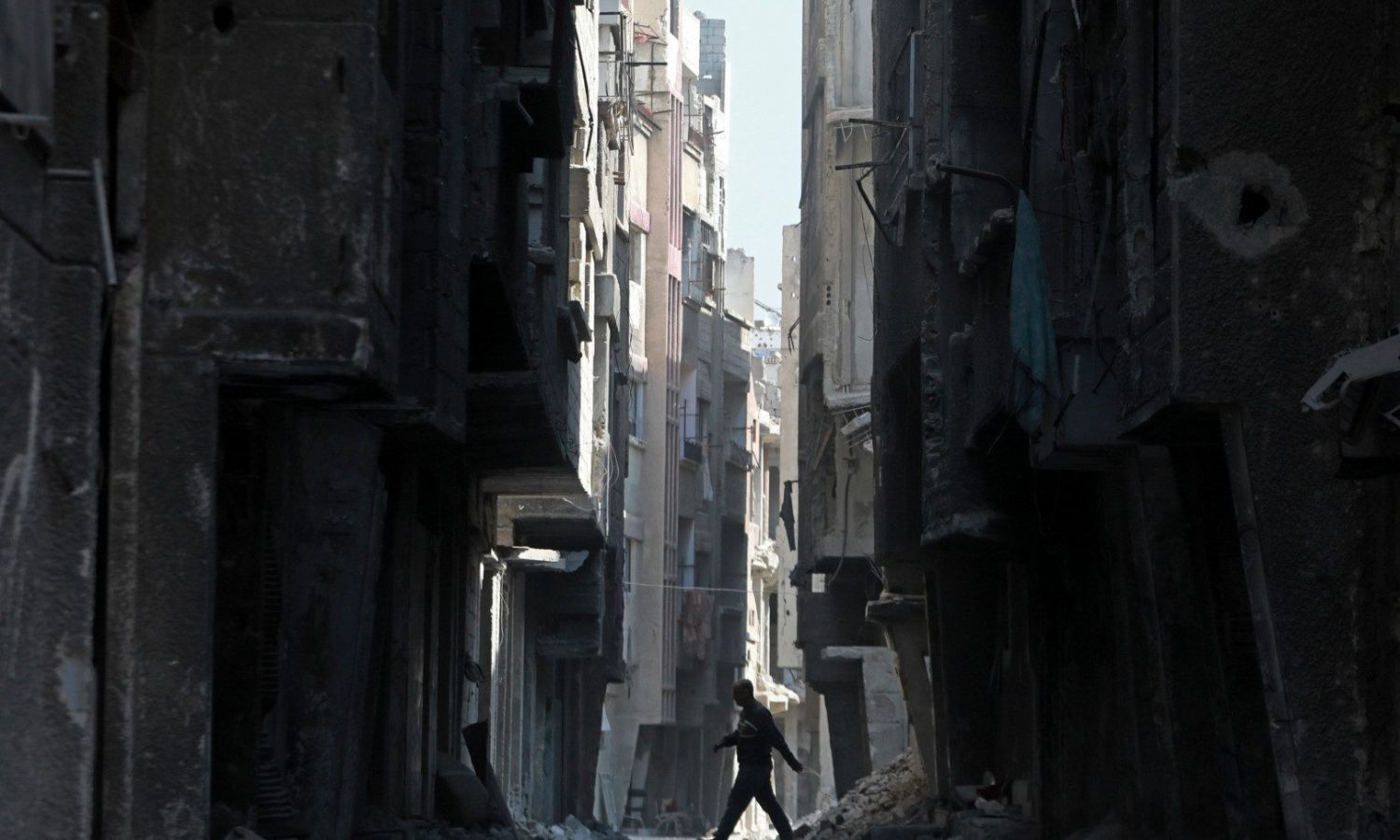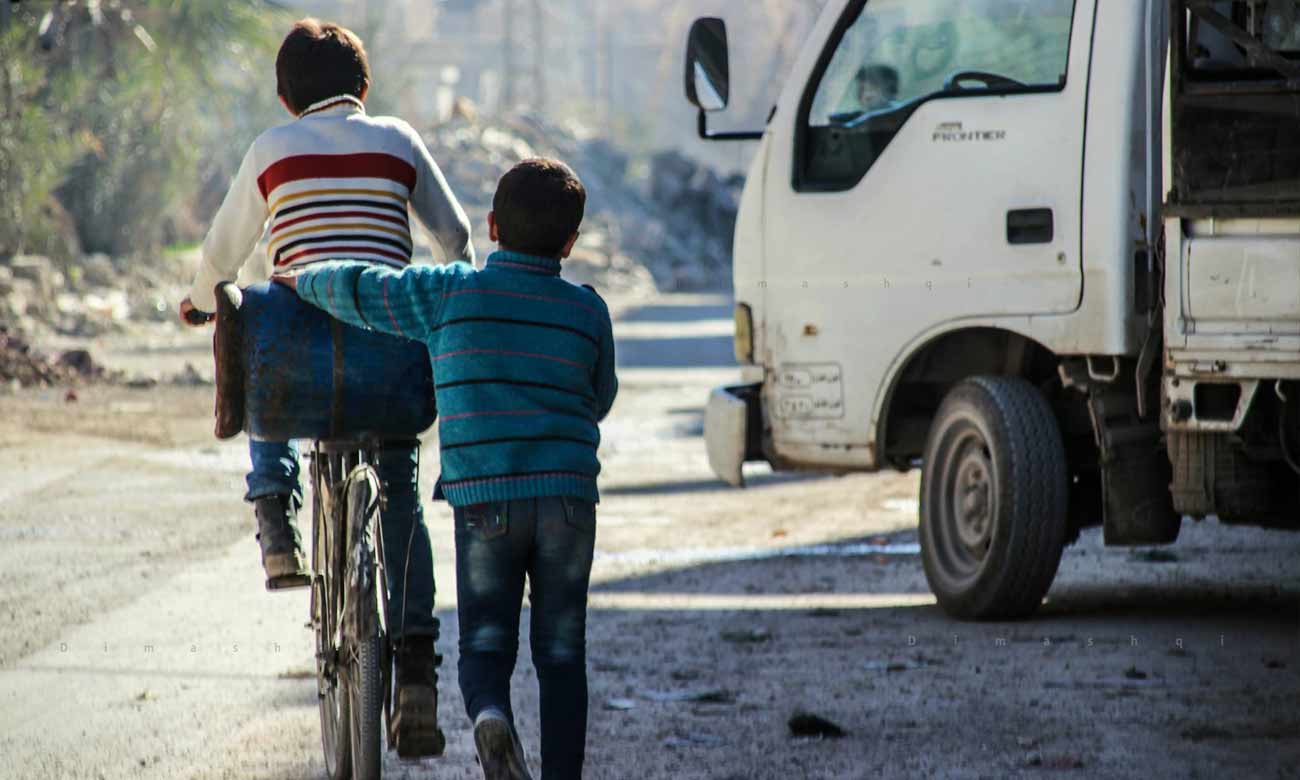



Enab Baladi – Muhammed Fansa
In 2022, Syria came last in several rankings issued by international organizations, as the humanitarian, political and economic crisis has reached new depths. Meanwhile, expectations stated that next year will not be any less bad than 2022.
Enab Baladi monitored the statistics issued by international organizations for the current year, which indicate the country’s economic or human rights situation with regard to freedoms and human rights.
Although important and sometimes more realistic, studies and research on the situation that were published in Syria have not been taken into consideration because they do not classify or compare results with other countries.
Institutions’ figures have seen Syria ranked last with developing countries that are experiencing internal or border conflicts, while economic analysts consider that some of these figures do not reflect Syria’s actual poor reality because of their reliance on “estimates” rather than realistic surveys.
Syria ranked first among the most corrupt countries according to the 2022 ranking issued by Global Risk organization, which specializes in risk management services; it ranked 196th after Yemen, Congo, and North Korea.
The Corruption Perceptions Index ranks countries and territories around the world based on the extent of money laundering, fraud, and terrorist financing operations taking place in the country; according to the website, the results are given on a scale of 0 (very clean) to 100 (highly corrupt).
Corruption is one of the factors leading to “the fragility of governments.” According to the US Fund for Peace’s Fragile States Index, Syria was the third most “fragile” state in 2022, after Yemen and Somalia, out of a total of 179 countries.
According to the Organization for Economic Co-operation and Development (OECD), the fragile territory or state has weak capacities to perform basic governance functions and lacks the capacity to develop mutually constructive relations with society. Fragile regions or states are also more vulnerable to internal or external shocks, such as economic crises or natural disasters.
The same organization (the US Fund for Peace) issues a special index called the State Resilience Index (SRI), which stands alongside the Fragile States Index (FSI), as a new tool to identify capacities and capabilities in countries under stress. Resilience is the extent to which a country can prepare, manage, and recover from an internal crisis, relative to the severity of that crisis.
Syria ranked sixth out of 154 countries most unable to manage crises.
The World Bank Group (WBG), the Asian Development Bank (ADB), and the African Development Bank (AfDB) issue a harmonized list of fragile states, which is updated each year. Since 2015, and with regard to preparing the 2030 Agenda for Sustainable Development (the 17 SDGs), Syria was ranked 129th out of 163 countries in the classification that reflects its application of the rules of sustainable development.

A man walking in the Yarmouk camp in the southern suburb of the Syrian capital, Damascus – 11 February 2022 (AFP)
In terms of workers, Syria ranked 18th out of 117 countries on this year’s Working Poverty Rate ranking issued by the International Labour Organization (ILO). The organization also ranked labor productivity in Syria 149th out of 185 countries, indicating poor productivity.
As for the employment-to-population ratio, Syria ranked 166th out of 190 countries at a rate of 39.2%, according to the latest ILO updates for the current year. This indicates labor migration.
Although the UN rated more than 90% of Syria’s population below the poverty line, the highest real estate-to-income ratio globally is in Damascus, according to statistics from Numbeo.
The International Rescue Committee (IRC) issues an annual Emergency Watchlist of the countries most affected by humanitarian crises. The IRC sets priorities for its activities and resources for the next year according to the said classification.
The humanitarian crisis in Syria ranked sixth on the committee’s watchlist for the next year due to the ongoing humanitarian effects of the conflict and the worsening health situation after the spread of cholera in the country. Syria was ranked ninth in last year’s report.
The Syrian passport is the world’s most expensive passport and the third worst in the world, according to the Henley Passport Index, after the Iraqi and Afghan passports. Despite its high price and limited access to countries, the term “passport” was among the four most searched topics on Google in Syria over the past year.
Poverty and price hikes have weakened access to the most basic services, such as access to the Internet, as only 46.6% of the population has access to Internet. Syria is ranked 13 out of 14 countries in the Middle East, according to the Internet World Stats website.
After many countries had long aspired to reach the Syrian prices of fuel, Syria ranked 127th out of 168 countries in the list of countries with the cheapest price per liter of gasoline, according to the Global Petrol Prices website, following the increased prices imposed by the regime’s government in December.
Syria topped the global list of the least free countries, according to the US Freedom House (FH) report for 2022, involving 210 countries. The American organization attributed this arrangement to the rule of the Syrian regime and its oppression of the Syrians.
In turn, the Economist Intelligence Unit (EIU), in its report issued this year, ranked the regime in Syria the last in the Arab world and 162 globally out of a total of 167 countries classified in its Democracy Index 2021.
Violations continue in Syria against many segments of society, with Reporters Without Borders (RSF) placing Syria 171st out of 180 countries with the highest incidence of violations against journalists in its current year’s report.
Like journalists, Syria is one of the most violating countries in terms of children’s rights. The UN Secretary-General’s annual report on “Children and Armed Conflict” ranked Syria as the worst country in the world in terms of the recruitment and use of children.
The Syrian regime and its allies led the violations associated with murder and maiming, while the Syrian Democratic Forces (SDF) was second in relation to the same violation.
The UN report issued this year indicated that Syria is the worst country in the world in terms of recruitment and use of children in conflicts; 1296 children were recruited and used in Syria in 2021, and 1285 of whom had participated in combat.
The American Georgetown Institute for Women, Peace, and Security classified Syria as the penultimate worst country for women to live in after Afghanistan out of a total of 170 countries involved in the said ranking; this was due to repeated violations against women in Syria.

Two children carrying a gas cylinder on a bicycle in Eastern Ghouta – 2 April 2019 (Lens young Dimashqi / Facebook).
Syria ranks first in the world in terms of the number of refugees, according to United Nations High Commissioner for Refugees (UNHCR) reports, which was reflected in the number of asylum seekers, especially in European countries; Syrian asylum seekers ranked first in Germany during 2022, with 27% of the total number of applications, according to a report by the European Commission quoted by the German newspaper Die Welt.
Theft and murder incidents increased in Syria; Damascus was classified as one of the most crime-ridden and least safe cities, as it ranked 31st globally out of a total of 417 cities classified by Numbeo.
This is also reflected in the current year’s Vision of Humanity report, which placed Syria in the Global Peace Index, 17th in the Arab world, and 161st globally out of a total of 163 countries participating in the ranking.
Economic researcher and consultant at Chatham House (Royal Institute of International Affairs), Zaki Mahshi, explained to Enab Baladi that some of the organizations’ indicators on Syria, such as the Fund for Peace’s State Fragility Index and the International Labor Organization’s Working Poverty Rate, do not give realistic figures because of their reliance on “estimates” rather than actual surveys. He estimated that the organizations’ figures had painted a better picture of reality.
The researcher gave an example of this; he said that the proportion of the Syrian population below the poverty line, which is 90% as mentioned in the United Nations report, does not correspond to the Working Poverty Rate previously set by the International Labor Organization at 39%. The Syrian reality was best reflected in international and Syrian research and studies centers, which gave figures based on actual surveys, he indicated.
“Syria’s situation is an anticipated and inevitable result after some 12 years of war and conflict, the destruction of infrastructure, the cessation of production and the collapse of the Gross Domestic Product (GDP) by more than 65 to 70%”, the researcher said.
Syria’s decline on all economic, social, and political levels came as a result of the dominant forces continuing to pursue the same policy that does not take into consideration the population’s interests and aspirations, such as the strong-headed Syrian regime’s adoption of a policy of not making concessions except for those made to its Russian and Iranian allies as described by the Chatham House consultant.
The economic researcher predicted that if existing forces continue on the same “mindset,” Syria’s situation will worsen, and the population poverty gap will further widen.
According to the researcher, there are two solutions to change the negative indicators; either through a political transition and the Syrian regime’s departure from power or full normalization with the regime. However, the researcher ruled out the second solution in the near term because of the US opposition to this move, despite the rapprochement with Turkey and certain Arab states’ normalization of their relations with the Syrian regime.
Syria left world classifications in a variety of indicators due to the limited data available or the country’s deteriorating situation; it was excluded from the MSCI World Health Care Index, the global quality education rankings, and the United Nations World Happiness Report.
if you think the article contain wrong information or you have additional details Send Correction